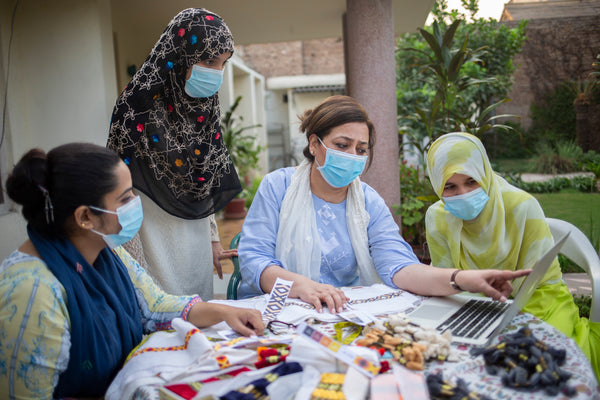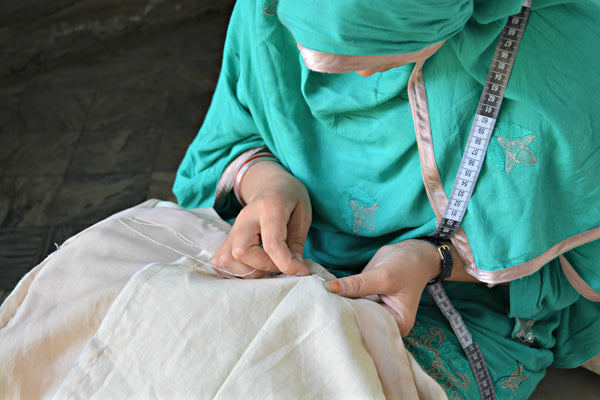Zia Gul
Zia Gul has been working with Artisan Links for more than 20 years now. With her exceptional skills, she has been able to train other artisans and has taught them the art to the different types of embroidery and design techniques. Having lost her husband and son, she was the only working member of her family. Artisan Links was her only source of income but with her hard work and dedication, she successfully managed to educate her daughters. Artisan Links attributes its success to women artisans like Zia Gul. Here, at Artisan Links, we facilitate a safe and comfortable working environment for artisans like her to flourish in. Keeping cultural constraints in mind, we want to provide an environment where creativity is not hindered, but one where women are fueled by friendship, growth and innovation.
Razima
To escape the war in 1988, Razima, at the age of fifteen, migrated from Afghanistan to Pakistan. After staying at the Baghicha refugee camp, she later got married to a security guard from a private company. She then settled down in Peshawar and had 9 children. Unfortunately, her husband had an accident which left him paralyzed, and unable to work or earn any income for their family. But Razima, being the brave and respectable woman she is, turned to her embroidery skills to cater to the economic needs of her family, which included her husband’s medical expenses. At Artisan Links, we endorse this sort of behavior. By supporting women artisans, we are inspiring these women to support their own families and earn a livelihood.
Nadia
Nadia, the eldest amongst nine siblings, was born in Afghanistan. As a result of the war, her father lost his business and in 1992, her family had to migrate to Pakistan. They settled down in a refugee camp but unfortunately, they were faced with several problems. Nadia, alone, was left to look after her siblings while her parents worked hard to make ends meet. Due to her additional responsibilities following their migration, she was unable to continue her studies. Moreover, her father ended up contracting a disease which led to Nadia learning sewing and stitching to support her family. But even then, she was unable to enroll her younger sisters in school. However, she began to work at Artisan Links and since then, things took a turn. Being employed at Artisan Links helped her tremendously in meeting her financial obligations, and it encouraged her to further develop her sewing and stitching skills.


